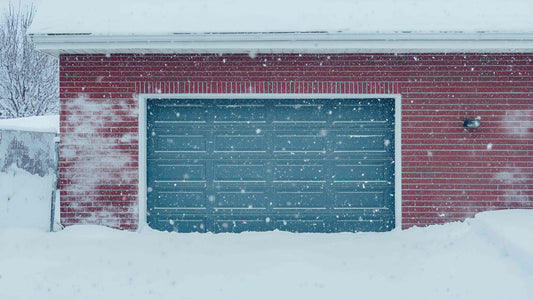
Are Storage Units Responsible for Rodent Damage?
Share
If you’ve entrusted a storage unit to safeguard your belongings, you likely expect to retrieve them exactly as you left them — clean, secure, and untouched. But what if you open the door to find chewed boxes, urine-soaked furniture, or rodent droppings scattered around?
Unfortunately, this scenario is more common than you’d think, particularly as the storage industry continues to expand into more urban areas. And it raises an important question:
Are storage units legally responsible for rodent damage?
Let’s break down what your rights are, when storage facilities may be at fault, and how to protect your items from costly infestation.
TABLE OF CONTENTS:
- Are Storage Units Responsible?
- Will Insurance Cover the Damage?
- Can You Sue the Storage Facility?
- Avoiding the Wrong Facility
- Tips to Protecting Your Items
Who Is Liable for Rodent Damage in a Storage Unit?
Many renters assume the storage facility will cover damages — but that’s not always the case. Storage providers are expected to maintain clean, pest-free environments, but they often include disclaimers in rental agreements that shift responsibility onto the tenant.
Common Contract Clauses That Limit Liability
Most rental agreements contain:
- “Acts of nature” or “vermin” waivers
- Caps on facility liability
- Language that shifts pest prevention to the renter
These clauses make it difficult to hold a facility accountable unless clear negligence is involved.

Will Insurance Cover Rodent Damage in Storage Units?
If you find yourself facing costly rodent damage, your first step should be to check whether any existing insurance policies might offer protection.
Homeowners or Renters Insurance
- May offer limited coverage of off-site property (usually up to 10% of your policy)
- Rodent damage is often excluded under “vermin” or “maintenance” clauses
Facility-Offered Insurance
- Some facilities offer add-on protection plans
- Read the fine print — pest or rodent damage may be excluded or limited
| Insurance Type | Rodent Limit | Deductible | Notes |
|---|---|---|---|
| Facility-offered | $250–$500 | $100–$200 | Often excludes vermin |
| Renter/Homeowner rider | Varies (10%) | Standard | Frequently excludes pests |
| Supplemental pest insurance | $1,000+ | $0–$100 | Best choice if high-value items |
Smart Insurance Tips
- Ask directly if rodent damage is covered
- Request documentation for any exclusions
- Consider supplemental storage insurance that includes pest-related losses
(How expensive can rodent damage be? Check out our Free Estimate Calculator)
Can You Sue a Storage Facility for Rodent Damage?
In some cases, yes — but it’s not always easy. While it’s tempting to assume the storage facility should be held accountable, successfully collecting damages can be an uphill battle.
Legal Barriers Included in Rental Contracts:
- Explicitly waive the facility’s liability for damages caused by pests, rodents, or other “acts of nature”
- Include liability caps that limit the total compensation available
- Require arbitration rather than a court lawsuit, making legal action more complicated and less favorable for tenants
You May Have a Case If:
- The facility failed to take reasonable preventative measures — such as regular pest inspections, professional pest control, or addressing prior infestations.
- The facility explicitly promised pest control services or a pest-free environment and failed to deliver.
- Other tenants documented similar complaints previously.
Before pursuing legal action, it’s often advisable to first discuss the issue with the facility’s management. Sometimes a resolution can be reached amicably — and far more quickly — without resorting to lawyers.

How to Avoid The Wrong Storage Unit
Don’t wait until after the damage is done. Here’s how to investigate before choosing a storage facility:
Questions to Ask the Facility Manager:
- How often is pest control performed?
- Does the rental agreement limit liability for pest damage?
- Are there any insurance plans available that cover rodent damage?
- Has the location experienced any recent infestations?
- Are there recommended storage guidelines to help tenants protect against pests?
Red Flags to Watch for:
- Rodent droppings, chewed corners, or musty smells
- Overflowing dumpsters or food litter near the property
- Vague or evasive answers from management
Review Online Feedback:
- Search for keywords like “rats,” “mice,” or “infestation”
- Look for patterns in complaints across multiple platforms
How to Protect Your Stored Items from Rodents
While we’d all love to believe that every storage facility will live up to its maintenance promises, it’s critical to take your own preventative steps to safeguard your belongings. Here’s how:
- Avoid storing food: Even sealed, non-perishable items can attract rodents.
- Use tight-seal plastic containers: Hard plastic bins offer far more protection than cardboard boxes.
- Elevate your items: Keep everything off the floor by using pallets or shelving units to deter pests and protect against moisture.
- Perform regular inspections: Check your storage unit periodically for signs of infestation — including droppings, chew marks, or nesting material.
- Consider a Box-Kat system: The patented Box-Kat mouse barrier provides an extra layer of security, physically blocking rodents from reaching your belongings.
Taking these steps greatly reduces your risk of returning to an unwanted — and costly — surprise.
Final Thoughts
While storage facilities are responsible for maintaining a pest-free environment, tenants must also do their part to protect what they store.
By reading the fine print, securing appropriate insurance, checking reviews, and taking preventative measures, you can significantly reduce your chances of falling victim to rodent damage.
A little preparation now can save you a major headache (and expense) later.



